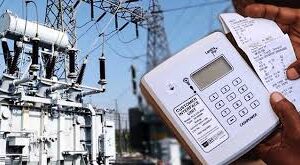As the coronavirus pandemic continue to ravage and countries worldwide go on lockdown to stem the spread of the disease, there are fears that economies globally may just be in for a hard time; BENJAMIN UMUTEME reports.
With social distancing measures grinding economic activities to a halt and widespread carnage in financial markets, the Central Bank of Nigeria (CBN) and governments all over the world have rolled out measures to support their economies.
However, by the end of the last week, very little impact of these measures was seen as stock markets, mirror of economies, and continue to plummet.
To support the economy, fiscal and monetary policy stimulus is being implemented globally. Some include the $1.0 trillion emergency stimulus to pay each citizen $1,000 in the US, the £330 billion business loan package in the UK, $600 billion stimulus in Germany, CAD$20 billion economic relief package in Canada, €26 billion in Italy.
And in Nigeria, 1.1 trillion was last week announced by the Central Bank of Nigeria (CBN) as intervention fund to support the economy before it was later jerked to N3.5 trillion.
Nigeria’s equities market
Last week, the Nigerian Stock Exchange (NSE) sustained its negative performance as investors reacted adversely to elevated risks associated with the spread of COVID-19 and declining oil prices. Accordingly, the All-share Index (ASI) fell 2.4 per cent week-on-week (w/w) to settle at 22,198.43. Thus, investors lost N279.1 billion as market capitalisation declined to N11.6 trillion while Year-to-Date (YTD) return declined to -17.3 per cent. Activity level waned as average volume and value traded depreciated 29.3 per cent and 25.5 per cent to 792.6 million units and N8.7 billion, respectively.
The most actively traded stocks by volume were ZENITH (572.6 million units), GUARANTY (546.9 million units) and FBNH (350.6 million units) while GUARANTY (N10.5 billion), ZENITH (N7.4 billion) and DANGCEM (N2.5 billion) led by value.
Sector performance was bullish as 4 of 6 indices gained week-on-week.
Investor sentiment as measured by market breadth (advance/decline ratio) improved to 1.4x from the 0.02x recorded last week as 34 stocks advanced relative to 25 stocks that declined.
In the coming weeks, there are fears that the bearish trend will continue to persist in the absence of any major market catalyst to stimulate investors’ appetite towards the market.
Global stocks market
Performance across the developed markets was bearish. In the US markets, the S&P 500 and NASDAQ fell 9.9 per cent and 8.8 per cent w/w, respectively, despite a $1.0 trillion emergency stimulus. Likewise, Hong Kong’s Hang Seng and Japan’s Nikkei 225 indices declined 5.1 per cent and 5.0 per cent w/w respectively while the UK’s FTSE All-Share index dipped 4.0 per cent w/w. Germany’s XETRA DAX and France’s CAC 40 indices depreciated 2.5 per cent and 1.5 per cent w/w respectively despite Germany’s $600.0 billion stimulus.
In the BRICS market, there was a bearish performance as all indices trended southward. Similarly, Russia’s RTS and China’s Shanghai Composite depreciated 7.2 per cent and 4.9 per cent w/w, respectively.
In Africa, the bearish performance continued as all markets recorded losses. Egypt’s EGX30 emerged the top laggard, down 17.8% w/w while Mauritius’ SEMDEX trailed, falling 16.7 per cent w/w. Likewise, Morocco’s Casablanca MASI and Kenya’s NSE 20 indices fell 9.8 per cent and 4.7 per cent w/w respectively.
In Asia and the Middle East, performance was largely bearish as 4 of 5 indices closed in the red w/w. Turkey’s BIST 100 index led laggards, down 9.9 per cent, followed by UAE’s ADX General Index and Saudi Arabia’s Tadawul ASI which declined 6.0% and 1.4 per cent w/w, respectively. Similarly, Thailand’s SET Index closed the week 0.1% lower. On the flip side, Qatar’s DSM 20 index emerge the lone gainer, advancing 4.2 per cent w/w after the government announced QR75.0 billion financial package for the private sector and another QR10 billion fund infusion into the QSE in view of the challenges posed by Covid-19.
Economic slowdown
In the past week, many countries in Europe and America have explored the lockdown option to contain the pandemic and this have had an effect on Nigeria’s economy as there has been a slowdown in manufacturing locally as disruption in the supply chain is already taking a toll on raw materials needed for production.
Already, this has taken a toll on the economy with oil price hovering around $26.44 as at Wednesday morning indicating a 4.58 per fall in price from the $30 earlier in the week.
With the price presently below federal government’s benchmark of $57 per barrels, Nigeria’s fiscal authorities have been forced to reduce the budget by N1.5 trillion at the same time pegging back the benchmark on oil to $30, but with oil prices falling below the new benchmark, there are fears that the economy might just have entered another crisis.
Already, the heat is on with the Federal Accounts Allocations Committee (FAAC) sharing a total of N581.566 billion as February 2020 allocation among the three tiers of government less than the over N600 billion shared in January.
The same thing with the country’s reserves which now stands at $35.94 billion down from $38.53 billion in January. Even the Excess Crude Account is precariously poised at $71.81 million.
For the director-general of the Lagos Chamber of Commerce and Industry (LCCI), Dr. Muda Yusuf, the performance of key sectors of the economy that have the capacity to facilitate economic diversification is still largely constrained.
According to him, the global supply chain has been deeply disrupted as China, which is the second largest economy in the world, is a major supplier of inputs for manufacturing companies around the world, Nigeria inclusive is yet to revive its economy.
“Many manufacturers and service providers in the country are already experiencing acute shortage of raw materials and intermediate inputs. This has implications for capacity utilisation, employment generation and retention and adequacy of products’ supply to the domestic market,” he said.
Similarly, analyst, Friday Efih in a chat with Blueprint Weekend noted that the governments had over time failed to heed sound economic advice.
He said the call for diversification had never been fully heeded to by governments who would rather talk about it than take concrete actions to about it.
“If we had taken the issue of economic diversification more seriously we would not be on the verge of another recession,” he said.
Capital market to the rescue?
With African set to suffer about $30 billion lose from the impact of the COVID-19 pandemic, especially with movement both through the land air and sea on the verge of a closure, former governor of Ogun state now a federal lawmaker, Senator Ibikinle Amosun, is believed now is the time to turn to the capital market. Amosun is optimistic that capital market can become a veritable tool that could rescue the nation’s economy from the brink of recession in the face of COVID-19.
According to him, there is no better time than now for the federal and state governments to leverage opportunities provided by the capital market for sourcing infrastructure financing.
“We now know what the capital market can do to rescue the economy at a time like this. Shares are tumbling but we hope it won’t last long; however, we also have to look inwards and explore ways of diversifying our economy away from crude oil.
“If we have to diversify our economy, the capital market has a role to play and that is why we are here to support you. We will support the capital market for our country to realise these economic goals,” he said.
An economist and former chairman of the Nigeria Economic Summit Group (NESG), Bukar Kyari, is adamant that the economic impact of COVID-19 is going to be serious both in the monetary and fiscal term.
He said the way fiscal and monetary authorities approach the issue will breed confidence. He said, “I believe the president has to address the nation. Leadership means you have to tell people that you are doing what each and every one of us is supposed to do.”
He also added that the wastefulness in the 2020 budget should be addressed. I think we need to see this. Why should we be talking about renovation, anything that is not critical needs to be removed?”



